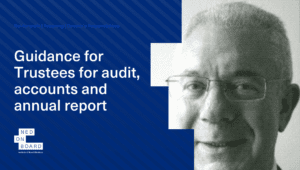The report of the select committees on the collapse of Carillion, released on 16th May highlighted a few of the fundamental considerations that non-executive directors, chairs and senior executives (members of the board of directors) should have in mind when they accept their nomination.
For members of the NEDonBoard community that have attended our acclaimed courses and our board best practice and keynote speaker events, there is little new information. But the members of the Carillion board of directors were not members of NEDonBoard and there is no surprise that they attracted severe criticism from the MPs.
- Non-executive directors and board members must ask themselves whether they are a clear understanding of the role they will take, are about to accept or have been appointed to.
- “Non-executives are there to scrutinise executive management. They have a particularly vital role in challenging risk management and strategy and should act as a bulwark against reckless executives. Carillion’s NEDs were, however, unable to provide any remotely convincing evidence of their effective impact” (point 59).
- Non-executive directors and board members must not assume they know. Carillion’s board members were experienced chairs and non-executive directors. Yet, they did not demonstrate their understanding of the issues faced by the company.
- “Philip Green joined the Carillion board as Senior Independent NED in June 2011 and became Chairman in May 2014. He was an experienced member of corporate boards. He also had experience of failing companies” (point 60).
- Extensive due diligence must be conducted prior to accepting a non-executive director or board member role. Non-executive directors and board members must assess on an ongoing basis that the corporate culture of the organisation on which they are a board member is within their risk tolerance.
- “The board was either negligently ignorant of the rotten culture at Carillion or complicit in it” (point 48).
- Non- executive directors and board members are responsible for ensuring that they receive the information they need to perform their role effectiveness.
- “Carillion’s management lacked basic financial information to do their job. A January 2018 review by FTI Consulting for Carillion’s lenders found the “presentation and availability of robust historical financial information”, such as cash flows and profitability, to be “extremely weak”. […] Responsibility for ensuring the company is run professionally is the responsibility of the board” (point 46).
Related posts:
Carillion’s lessons learned – Part 1: Why all non-executive directors and board members should complete a training programme
Carillion’s lessons learned – Part 3: what the NEDonBoard community says
Additional resources:
Key learnings from Carillion’s collapse
Written by Elise Perraud, NEDonBoard COO
Not yet a NEDonBoard member? Join us today and become part of a large community of talented professionals operating at board level, sharing wisdom and insights so we collectively accelerate global sustainable development.
New to the non-executive director role, start here.
Want to know more? Subscribe to our weekly newsletter.




